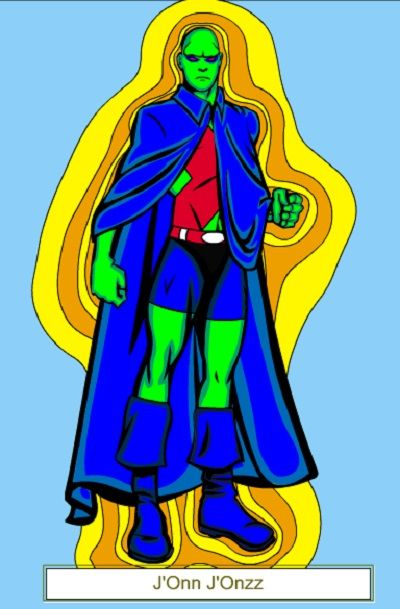 A while back, I purchased 45 Master Characters: Mythic Models for Creating Original Characters [Revised Edition] by Victoria Lynn Schmidt. It's an interesting book that takes eight essential archetypes, divides them into male and female parallel interpretations, then pairs them with ancient deities to expound upon the parameters of each variation through traits and fictional representatives. I'm not at all fond of the Robert McKee writing with training wheels school of thought that advises creators to embrace rules of formula, but at the same time, there's so much media being produced by people of varying degrees of talent that there are worse approaches. For instance, Dexter and Breaking Bad had their series finales a week apart. Dexter threw out the rule book, and came up with a final chapter that made its audience want to throw up out of revulsion at the inconceivable stupidity in execution. Meanwhile, I was a bit bummed with how safe and conventional Breaking Bad's resolution played out, and I think it wimped out on some core themes, but it was fine and played marvelously to its audience. Dexter was more "daring," but so is driving 100mph off a cliff. Some folks need to find a lane and make steady progress down a road.
I think that this is especially true with super-heroes, which deal explicitly with iconography and morality, rather than more ambiguous characters and storytelling. Since super-heroes overwhelmed the comic book medium, it's understandable that creators in the industry would try to expand the scope of what super-heroes could be, to allow themselves more storytelling avenues. However, universes built on power fantasies involving men in skintight costumes delivering justice with their fists is inherently limited, so pushing at their boundaries leads to conceptual breaks that turns juvenile ethics into violent pornography. Cognitive dissonance and realistic action/consequence is the province of Vertigo, Avatar, and the like, not spandex slugfests in shared universes created for children. There are some gifted writers who can find the line and work from that extreme, like Grant Morrison, Mark Waid and J.M. DeMatteis. Too many others lack a firm grasp on what they're doing in mainstream super-hero comics, and corrupt the characters and the medium with their ignorance. In such cases, a rule book would come in handy, so that your comic book protagonists are consistent and respected, like Walter White, rather than maligned and abandoned, like Dexter Morgan.
A while back, I purchased 45 Master Characters: Mythic Models for Creating Original Characters [Revised Edition] by Victoria Lynn Schmidt. It's an interesting book that takes eight essential archetypes, divides them into male and female parallel interpretations, then pairs them with ancient deities to expound upon the parameters of each variation through traits and fictional representatives. I'm not at all fond of the Robert McKee writing with training wheels school of thought that advises creators to embrace rules of formula, but at the same time, there's so much media being produced by people of varying degrees of talent that there are worse approaches. For instance, Dexter and Breaking Bad had their series finales a week apart. Dexter threw out the rule book, and came up with a final chapter that made its audience want to throw up out of revulsion at the inconceivable stupidity in execution. Meanwhile, I was a bit bummed with how safe and conventional Breaking Bad's resolution played out, and I think it wimped out on some core themes, but it was fine and played marvelously to its audience. Dexter was more "daring," but so is driving 100mph off a cliff. Some folks need to find a lane and make steady progress down a road.
I think that this is especially true with super-heroes, which deal explicitly with iconography and morality, rather than more ambiguous characters and storytelling. Since super-heroes overwhelmed the comic book medium, it's understandable that creators in the industry would try to expand the scope of what super-heroes could be, to allow themselves more storytelling avenues. However, universes built on power fantasies involving men in skintight costumes delivering justice with their fists is inherently limited, so pushing at their boundaries leads to conceptual breaks that turns juvenile ethics into violent pornography. Cognitive dissonance and realistic action/consequence is the province of Vertigo, Avatar, and the like, not spandex slugfests in shared universes created for children. There are some gifted writers who can find the line and work from that extreme, like Grant Morrison, Mark Waid and J.M. DeMatteis. Too many others lack a firm grasp on what they're doing in mainstream super-hero comics, and corrupt the characters and the medium with their ignorance. In such cases, a rule book would come in handy, so that your comic book protagonists are consistent and respected, like Walter White, rather than maligned and abandoned, like Dexter Morgan.

The Martian Manhunter routinely ranks among the top 50 DC characters and top 100 comic book characters of all time in polls and articles, and usually more like top 25 & 50 respectively. Yet, his solo series are a catalog of failure, because creators write around the character rather than through him. Most writers seem to know how to handle J'Onn J'Onzz in a team setting, essentially a cross between Mr. Spock & Bones McCoy with more powers than Superman who either falls in the first round to build stakes or produces the deus ex machina that saves the day against all odds. In solo stories, the Alien Atlas is often taciturn, offering expository statements and relying on supporting cast members for personality. His villains (when not figments of his own fevered mind, as in his 1988 mini-series, "Ghosts of Mars" and "Trial by Fire") are often a hodgepodge of "cool" ideas without regard for how they function against the concept of a Sleuth from Outer Space. Everyone knows that he's part of the DC Comics "pantheon," one of the founders of the Silver Age and the Justice League of America, but few seem to grasp how to portray that outside of lip service. If comics are a modern American mythology, what role does J'Onn J'Onzz serve in this folklore? Per the standards set by Victoria Lynn Schmidt, the Manhunter from Mars appears to be best associated with the positive, heroic aspect of Hades, Greek god of the underworld. Company J'Onn J'Onzz would keep in this realm includes Fox Mulder, Rick Blaine, Hamlet, Victor Frankenstein and Philip Marlowe. He is described as intellectual and philosophical, perhaps obsessive, and definitely averse to crowds. "He may be a sensitive man who can see other realms, a sort of psychic, and is in danger of totally withdrawing from reality altogether." As a loner, it would take a special, driven woman to draw him out, and he could perhaps invest himself in a small family for companionship. "He feels alien to everyone else and may want to move on to the next world, welcoming death." Due to his telepathy, he would be protective of his psyche and repressed in personality due to emotional fragility. He's an investigator/explorer, but from a detached reserve, retreating to solitude to process his findings. His preoccupations cause him to slip socially, wearing the same boring costume for half a century and being looked on with suspicion for his quirks.
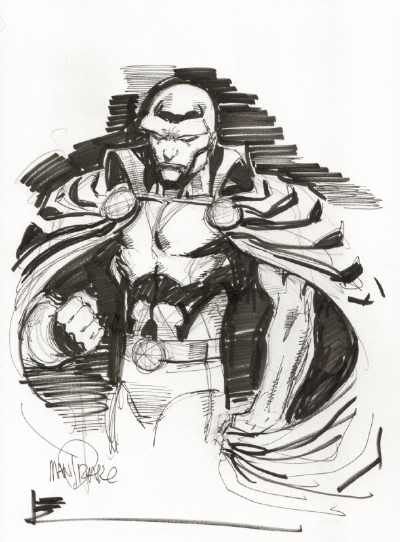
Schmidt suggests considering what in J'Onzz's history motivated him to isolate himself, and to confront him with his fears and anxieties. She suggests Hestia the Mystic/Betrayer as an ideal romantic partner, a role M'yri'ah likely filled. "The Fool" could help him loosen up and rejoin humanity, which recalls Gypsy. "The Dictator" could impose rules that destroy J'Onzz's inner peace, as Commander Blanx might have done. "The Maiden" could offer carefree innocence, which curiously would most closely approximate the role played by his pet/sidekick Zook. "The Scorned Woman" would reflect J'Onzz's darkest inclinations and repel him toward the light and connectedness, as Cay'an once did during his tour of abuse in "The Others Among Us," or as in D'Kay's sick fixation on a lost Mars. Looking over his past comics, the eponymous 1988 mini-series introduced a new status quo, but effectively detached J'Onn J'Onzz further from his friends, and offered no actual adversary to motivate him externally (rather, "it" led him inward.) American Secrets was more successful, offering Perkins Preston as Fool, Patty Marie as Maiden, and men in black as Dictators, all drawing John Jones out. The 1998 series kept him emotionally isolated while constantly surrounded by guest stars, and made a plot point out of his maintaining hundreds of identities/relationships around the globe, all at odds with the authorial goals regarding the Recluse. DeMatteis introduced a rationale for the recluse, and Ostrander reinforced it, but neither progressed from there. Malefic was the same character type as J'Onn J'Onzz without a compelling motivation. Mr. Bones threatened J'Onzz with isolation related to the revelation of his identities, which negates any conflict related to a recluse. "Revelations" and "The Renegades of Mars" hinged on J'Onzz being proactive in uncharacteristic and wrongheaded ways. "Rings of Saturn," one of the most successful arcs of the 1998 solo series, relied on J'Onzz being confronted with a conspiracy due to the social obligations owed to Jemm and his emotional entanglement with Princess Cha'rissa, in line with the archetype. Looking back, poorly reasoned motivation has been the bane of the character from the very beginning. He's supposed to be a scientist accidentally stranded on Earth, but he becomes a policeman under an assumed identity by the end of his original tale. It's no wonder that readers embraced Darwyn Cooke's New Frontier, whose John Jones used his police connections to investigate unusual happenings and government initiatives that almost land him on a rocket back to Mars. A super-powered alien doing good for goodness' sake is Superman's shtick, and even the Man of Steel struggles with modern audiences under that simplistic method of operation. Schmidt suggests more compelling drives for the Manhunter from Mars, and future scripters should heed her advise.




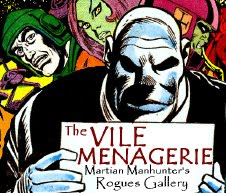


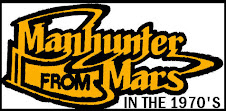
















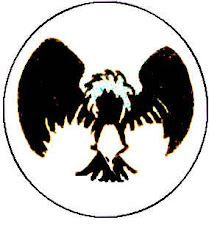




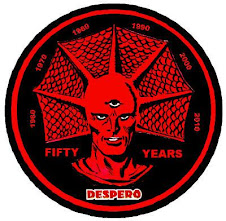
5 comments:
I really liked this article. I think much of it can be applied to J'Onn. He likely shies away from being too close to people as he has seen those dearest to him and his world destroyed. He has a keen intellect and a compassionate heart and I think that as much as he loves humanity, he is puzzled by us. I think that a lot more can be done to flesh out J'Onn. Thanks again.
I have this book, too, and your analysis in light of it is awesome. (Gotta love a Philip Marlowe reference.) I think if more writers followed your line of thought, there'd be a best-selling solo Martian Manhunter solo series out there in world.
I wonder if part of the lack of motivation might come from a failure to exploit J'onn's weaknesses? I don't mean the weakness to fire, but exploiting his deepest fears. (Which aren't particularly defined.) But I think using a negative emotion such as fear to drive a plot rather than worry about his goal-oriented motivation is one solid way to write a Martian Manhunter story. (After all, American Secrets is full of paranoia, some of which lives in J'onn's mind.) Perhaps conventional writers have been looking at him all wrong.
On the surface he's pretty straightforward, and the Darwyn Cooke interpretation could be shallow if not handled well--it could just boil down to a Dragnet-like procedural. But even characters like Joe Friday and Eliot Ness have their weaknesses, and when those are exploited, the story works much better. (I'm not sure if how familiar you are with The Untouchables, but one of the greatest episodes involves Eliot Ness falling to pieces after he's framed. If someone's values their sterling image, that's the last thing they can handle.)
Personally, Darwyn Cooke's interpretation really resonated with me because it showed how J'onn was an innocent in a world of cynics--i.e. the one truly good guy out there. (Which in a weird way, meshes with American Secrets, though maybe not at first glance.) It's saying something when a character can be work both as a wide-eyed naive newcomer AND a noirish tough guy. Can Superman do that??
Somewhere in all of Schmidt's archetypes is perhaps why Blanx works better than Malefic, too--perhaps Blanx hits at J'onn's core, whereas with Malefic, it's just a grudge match.
I've love to hear more analysis like this--I don't think anyone has completed figured J'onn out.
Liss, "Master Characters: Commander Blanx" will be up before the end of the month. Out of curiosity, which archetype would you assign J'Onn and Blanx? I agree that one of the problems with Ma'alefa'ak is that he's just the flip side of the Hades coin, a common, easy dynamic in comics. There's more energy when pro-&-antagonist bring different qualities into a story.
While I think J'Onn works best from a place of vulnerability, perhaps that aspect has been overplayed in his solo projects, especially the 1988 mini-series. J'Onzz has already been victimized by his worst fear, so his story is about moving forward from that horror and preventing it from visiting others. Too often, he's an Alien Atlas with feet of clay, instead of a compromised but girded survivor. He's Walter White emboldened by cancer to change the rest of his life, not the emotionally crippled, externally motivated Jesse Pinkman.
I never watched the Robert Stack Untouchables, but DePalma's carries your parallel well enough. Kevin Costner also managed to be both naively optimistic and mortally pragmatic in his portrayal. Great noir requires romanticism, even if delusional. As Carlin said, "Scratch any cynic and you will find a disappointed idealist."
Funny, when I dug out my copy, I had a bookmark in "Hades/The Recluse." So I concur with your analysis if J'onn. If I had to consider another, it would be Osiris/Male Messiah, if only because that archetype represents the surface asepects of superheroes.
For Blanx, I'm thinking Businessman/Traitor or King/Dictator, or a blend of the two. As outlined in the book, The Dictator character is a pretty classic power-hungry villain type.
That's a good point about J'onn's fears. I was thinking more of his fears for the present rather than the past--what is he afraid of now? American Secrets relied heavily on his need to keep his identity secret amidst an already-paranoid world. That can't really work in any modern story featuring J'onn, but then again, maybe that's why there haven't been any great recent Martian Manhunter comics. (And also perhaps why I never warmed up to the 90's solo series.) I think they need to work the psychological angle again, but without letting him become completely paralyzed like you pointed out. The Martian Manhunter, to me, is a pretty cerebral and psychological hero, and I think those two spheres need to be played up again.
I still have to watch Breaking Bad....
And the quote about cynics is absolutely true. After you pointed out the parallels between J'onn and Joe Friday, I starting thinking that J'onn really is a product of the 50's. Last summer I caught The Untouchables on the local "old TV" channel and I stumbled upon yet another 50's/60's parallel--a morally superior good guy still tough enough to keep a hard edge while righting society's wrongs is basically Silver Age J'onn J'onzz in a nutshell.
Liss, I narrowed Blanx down to one of those two archetypes, kept second-guessing myself with the other, but finally committed to The Traitor. It's tough because Blanx was perhaps the easiest fit of the core Vile Menagerie for The Dictator, but it doesn't quite work under scrutiny. I also kind of wanted to save the Businessman/Traitor for Arnold Hugo, but the Professor demanded a rather unexpected alternative.
One thing Stormwatch alluded to was other Martians surviving in secret with J'Onn's knowledge. It occurs to me that you can keep the paranoia alive by using those liabilities to push the Manhunter is undesirable directions. Between seeing 12 Years a Slave and hearing recent interviews with Elizabeth Smart, my mind conjures up all sorts of scenarios that could compromise J'Onn's decisions and ability to act in a neo-noir fashion. Kind of a dark place to go, but certainly a unique one for a DC pantheon type.
I maintain that "Joe Friday" is a good yardstick for measuring the handling of John Jones, though my mind has wandered toward a more '70s cinematic place in recent years... a bit more mercurial.
Do watch Breaking Bad. Knowing your tastes, I think you'll like it. Unlike a lot of modern shows, it plays fair with the audience, rather than trying to trick or dazzle it. The characters are established well and maintained honestly. Even with the twists and turns, it's fairly straightforward, teasing inevitabilities rather than misdirecting. Also, there's a very comic booky dynamic to the dueling lives of Walter White/Heisenberg and his sidekicks.
Post a Comment